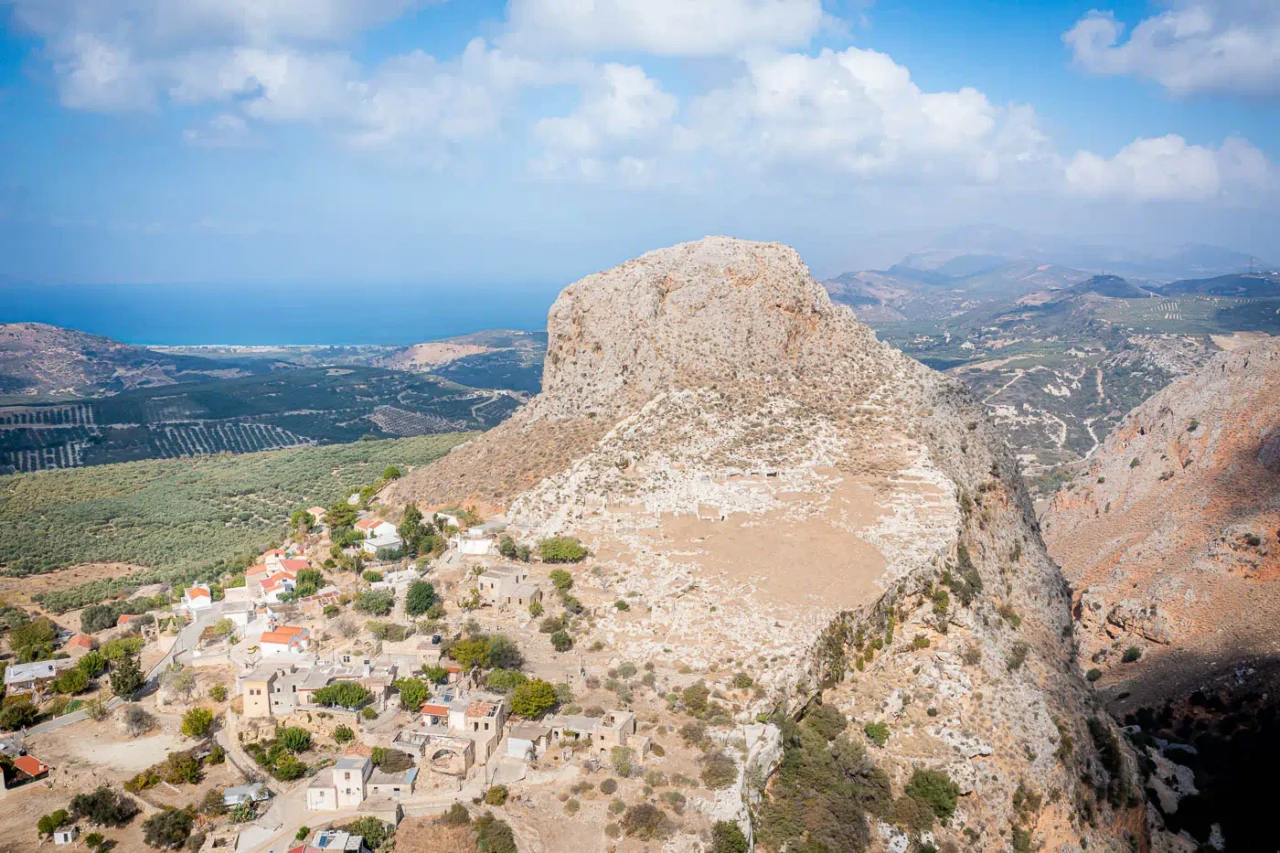
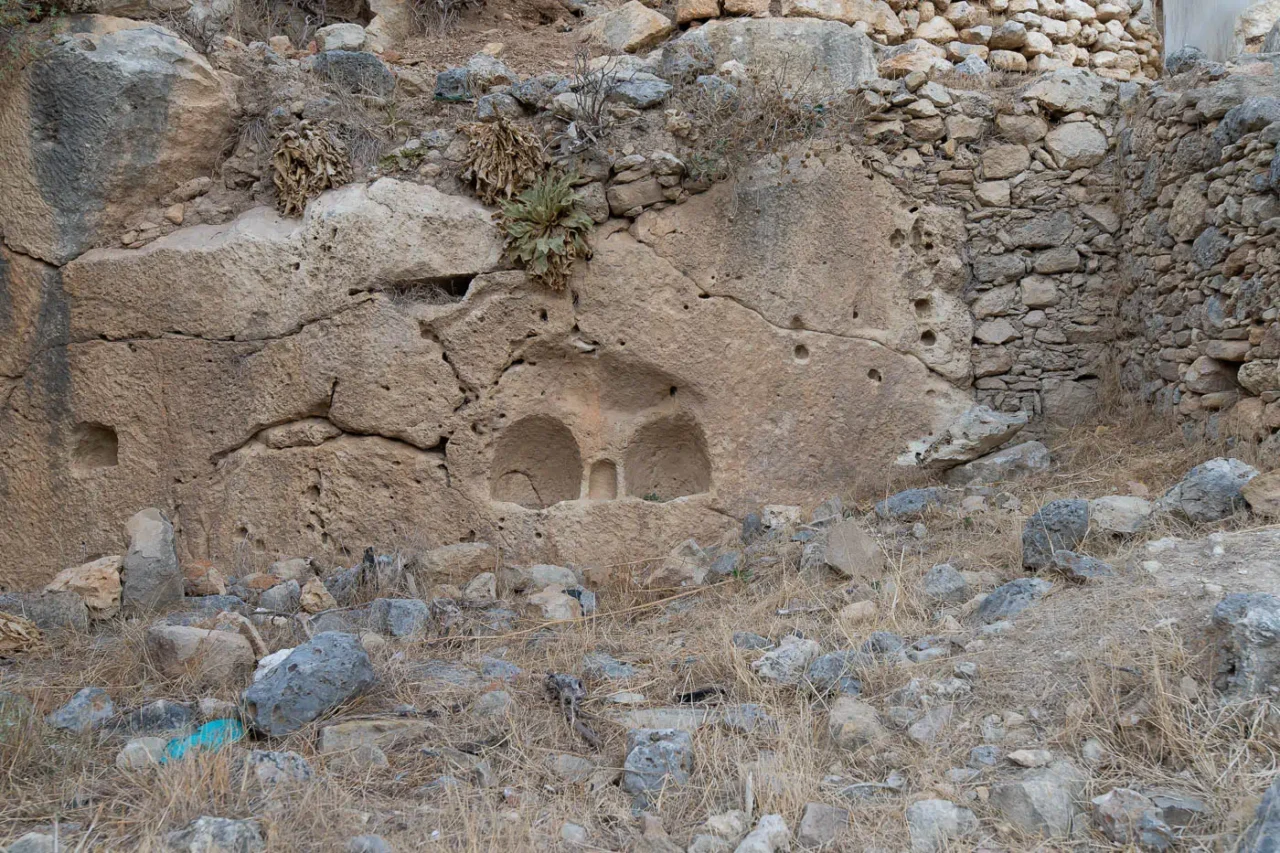
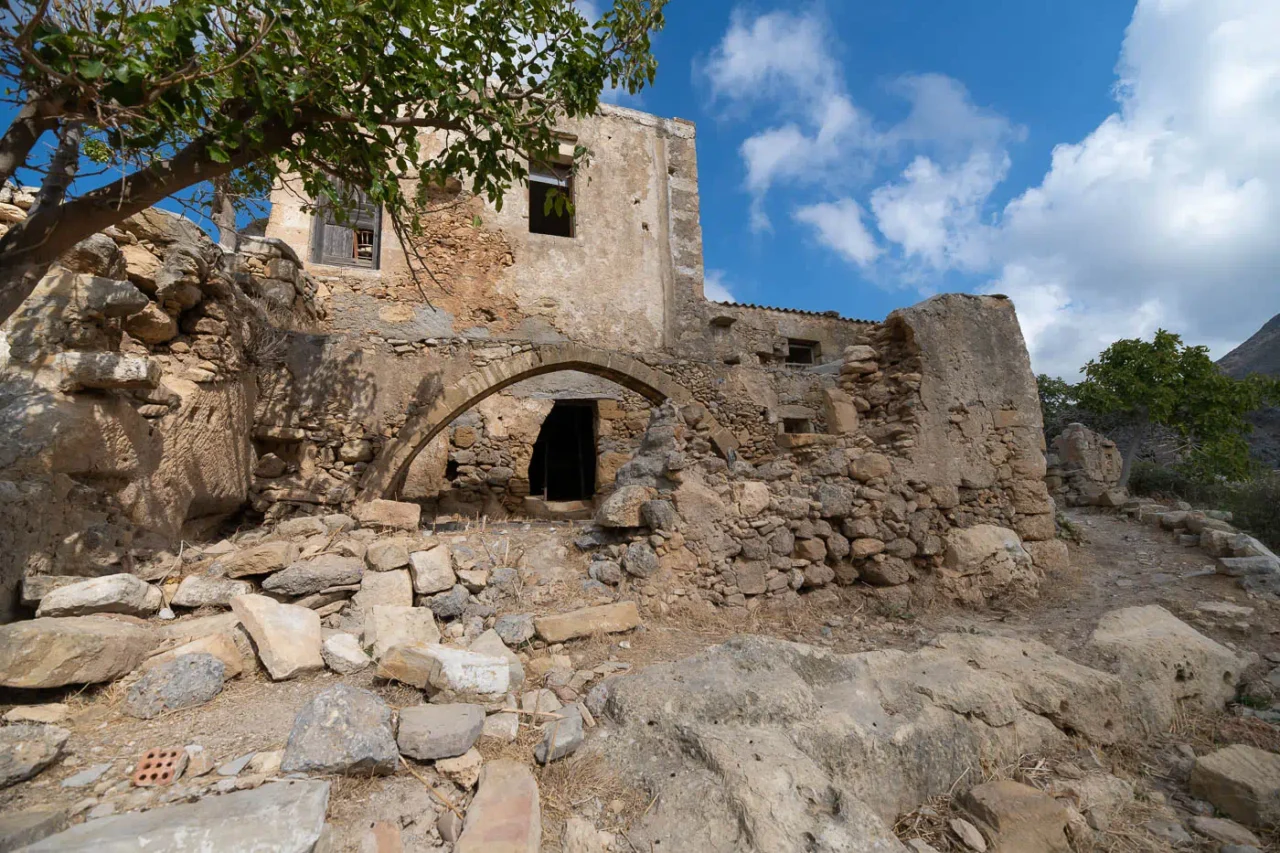
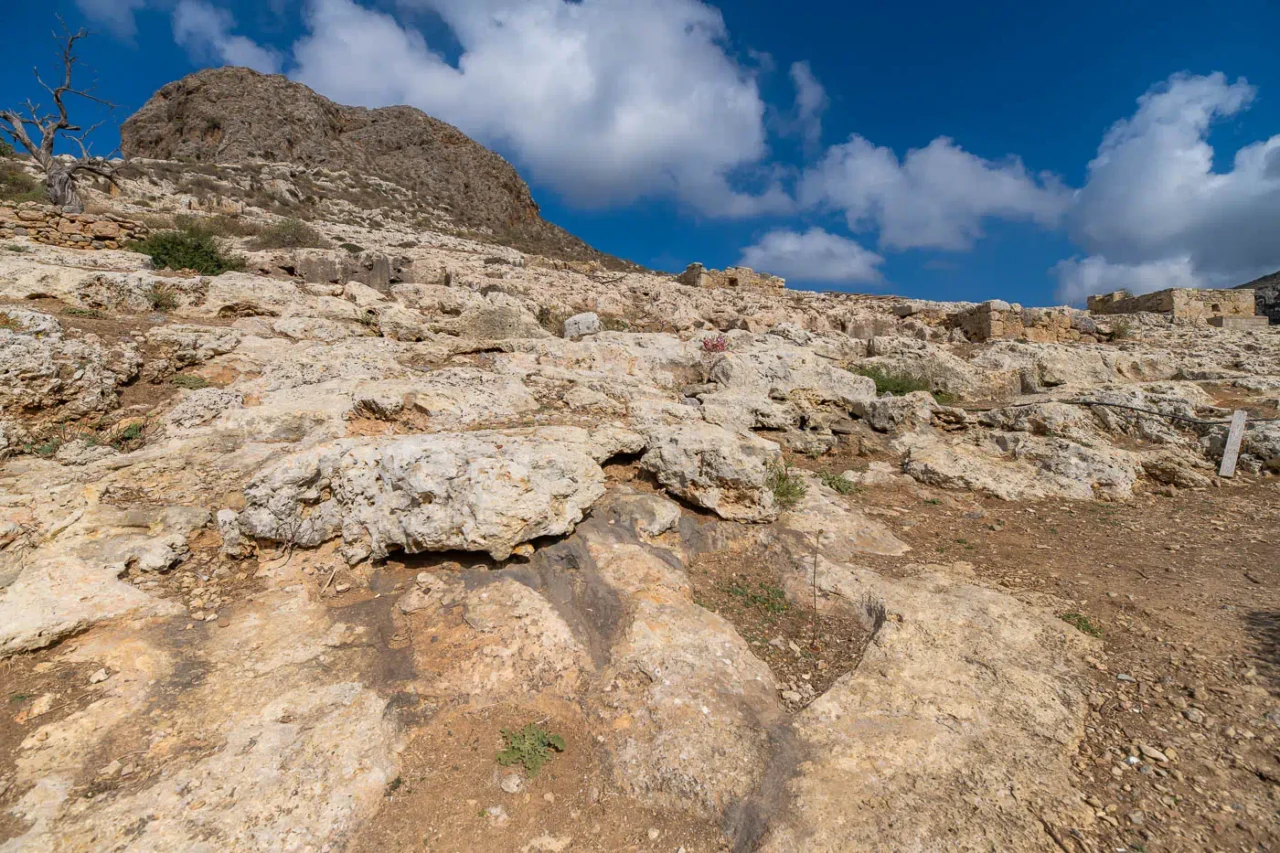
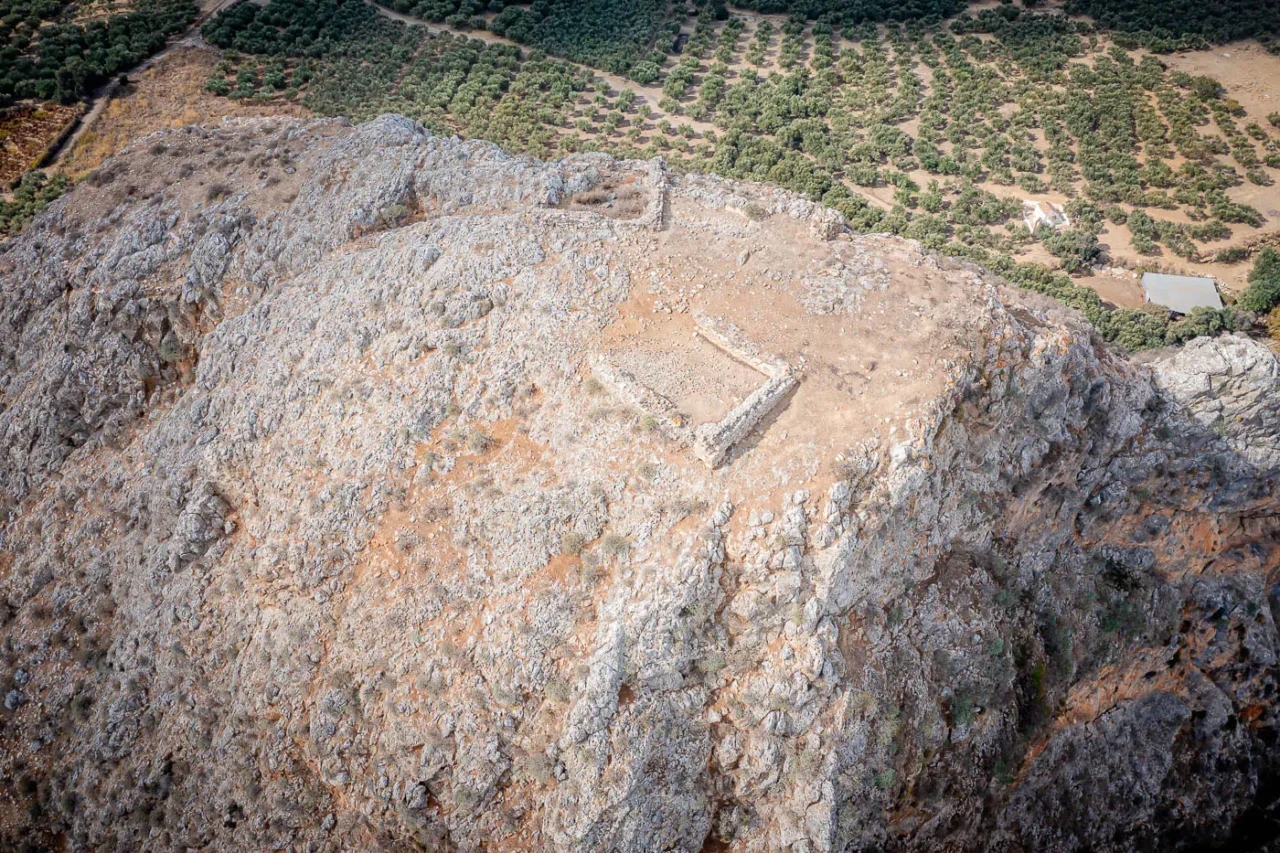
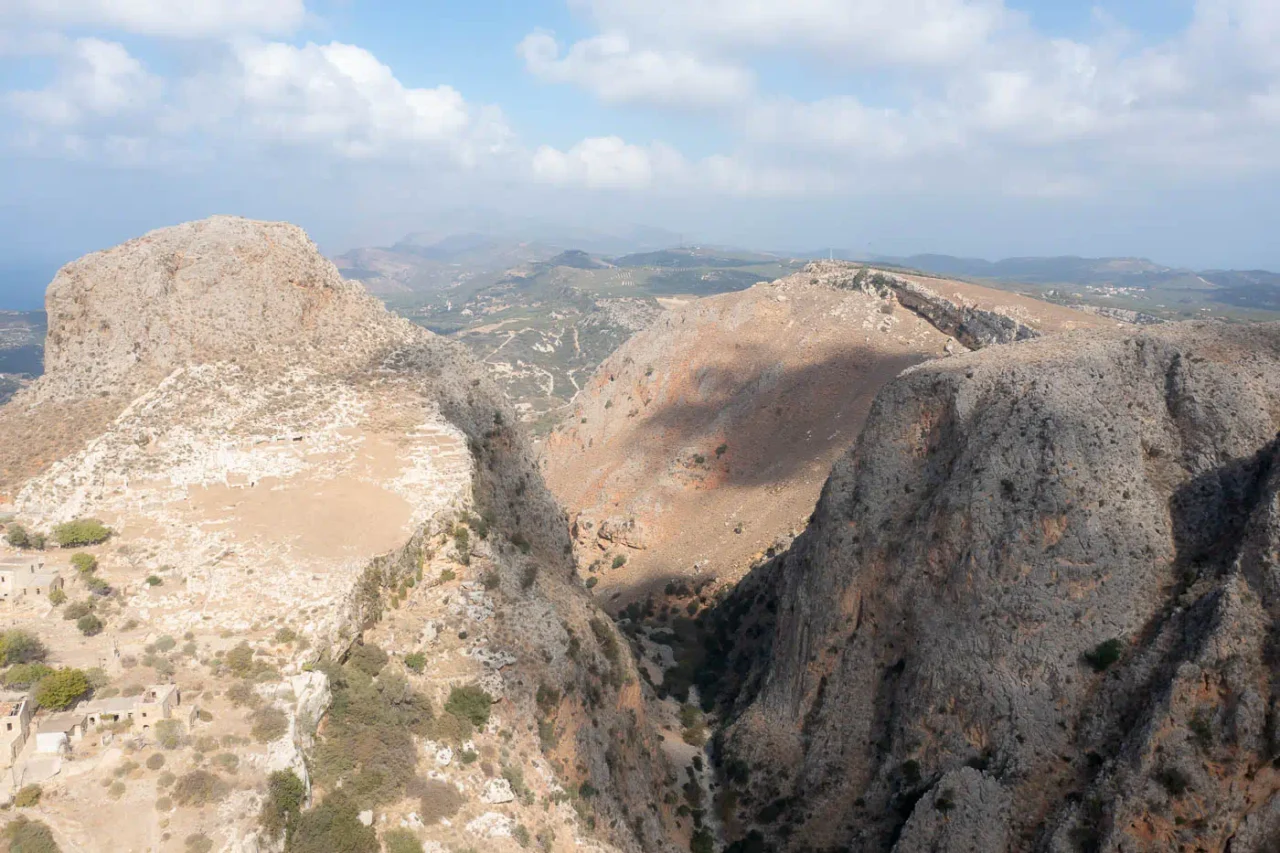
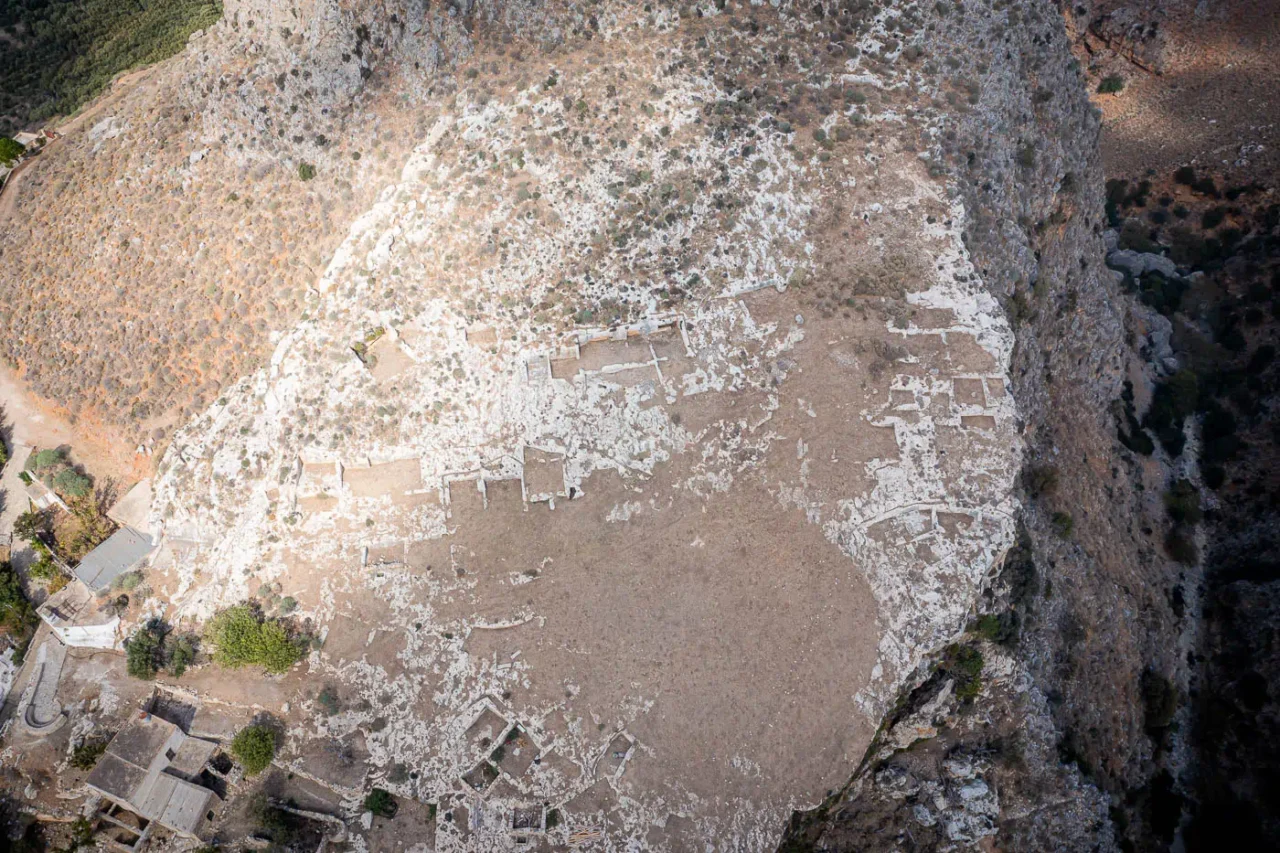
Rokka is a small village located in the northwestern region of Crete, Greece, specifically in the inland of the Municipality of Kissamos. It is situated in a hilly area with a small population of approximately 60 inhabitants. The village and its surrounding area have been declared an archaeological site by the Ministry of Culture, adding to its historical and cultural significance.
History and Archaeology
The archaeological site of Rokka, perched on the slopes of Troulli hill in western Crete, offers a captivating glimpse into the island’s Hellenistic past. Characterized by its dramatic landscape of rugged rock formations and deep gorges, the site is a testament to the ingenuity of its ancient inhabitants who carved their homes, cisterns, and even stairways directly into the limestone bedrock. This unique architectural approach, also observed in other western Crete settlements like Polyrrhennia, Selli, and Eleutherna, highlights an adaptation to the region’s topography and available resources.
The site’s history remains shrouded in some mystery. While archaeological evidence points to a thriving settlement during the Hellenistic period (4th to 2nd century BC), its exact identity remains a subject of debate. Some scholars propose it to be the ancient city of Keraia, while others associate it with the “Koinon ton Modaion” (Community of the Modaioi), a lesser-known entity in Cretan history. This uncertainty adds another layer of intrigue to Rokka, inviting further investigation and scholarly discourse.
The archaeological remains at Rokka paint a vivid picture of a well-organized community. Houses carved into the rock face, interconnected by carved pathways and stairways, suggest a planned settlement. The presence of water channels and cisterns carved into the bedrock demonstrates an understanding of water management crucial for survival in this environment.
Beyond the settlement, the presence of a necropolis with rock-cut chamber tombs and cist graves provides valuable insights into the burial practices of the time. Excavated artifacts, including pottery and lids decorated with symbolic motifs, showcase the artistic traditions and craftsmanship prevalent in the Kissamos region during the Hellenistic period. These findings, housed in the Archaeological Museum of Kissamos, offer tangible connections to the lives and cultural expressions of Rokka’s ancient inhabitants.
Despite the limited excavations conducted so far, the site’s significance is undeniable. Its declaration as an archaeological site in 2011 by the Ministry of Culture underscores its potential to contribute significantly to our understanding of Crete’s Hellenistic period. Further research promises to unravel the mysteries surrounding Rokka’s true identity, its connection to Polyrhennia, and the intricate details of daily life within this ancient community.
Giortes Rokkas Festival
One of the most notable aspects of Rokka today is the annual Giortes Rokkas festival. This cultural initiative was developed with the aim of encouraging citizen involvement and repopulation in the area. The festival features a variety of events and activities, including musical performances, educational programs, and workshops, all of which take place in the gardens, yards, and fields of the inhabitants.
The Giortes Rokkas festival has been instrumental in revitalizing the village and attracting visitors to the area. It has also provided a platform for the local community to showcase its cultural heritage and traditions. The festival’s success is a testament to the power of culture in promoting community development and repopulation in rural areas.
The Importance of Giortes Rokkas
The Giortes Rokkas festival holds significant importance for the village of Rokka and its surrounding community. It serves as a platform for cultural expression, community engagement, and economic development. The festival’s focus on classical music, a genre not typically associated with rural Crete, has created a unique identity for the village and attracted a diverse audience.
The participatory nature of the festival, involving all the inhabitants in the planning and execution of the events, has fostered a strong sense of community and ownership. The festival has also provided opportunities for cultural exchange and learning, with volunteers and visitors from outside the community contributing to the event’s success.
The Giortes Rokkas festival has demonstrated the potential of cultural initiatives in revitalizing rural areas and promoting repopulation. It has also highlighted the importance of community engagement and cultural expression in fostering a sense of place and identity.
Rokka: Key Points
- Construction Period: Hellenistic period (4th to 2nd century BC)
- Location: Inland within the Municipality of Kissamos, western Crete, Greece, on the slopes of Troulli hill.
- Landscape: Characterized by rugged rock formations, deep gorges, and a strategic location offering defensive advantages and panoramic views.
- Possible Ancient Identities: Keraia or “Koinon ton Modaion.” Possible connections with Polyrhennia.
- Archaeological Remains: Carved houses, cisterns, stairways, pathways, a plaza, water channels, and a necropolis with rock-cut chamber tombs and cist graves.
- Artifacts: Pottery and lids with symbolic motifs, typical of local workshops in the Kissamos region during the Hellenistic period.
- Historical Significance: Provides crucial insights into Hellenistic Crete, including settlement patterns, burial customs, water management, and cultural practices.
- Current Status: Inhabited village with a protected archaeological site overseen by the Ministry of Culture. Known for the Giortes Rokkas festival, which boosts tourism and the local economy.
References
-
Kolokytha, Olga (2023). Reclaiming Place: Cultural Initiatives in Cretan Villages as Enablers of Citizen Involvement, Local Development and Repopulation. In: Cultural Policy is Local. New Directions in Cultural Policy Research. Palgrave Macmillan, Cham. https://doi.org/10.1007/978-3-031-32312-6_8
-
Vasilakis, Antonis Thomas (2000). The 147 Cities of Ancient Crete. Kentro Kρητικης Λογοτεχνιας.
-
Mlinar, Elisabeth (2011). Fortified towns, settlements and other strongholds on Crete from Archaic through Hellenistic times. In: Πεπραγμένα Ι΄ Διεθνούς Κρητολογικού Συνεδρίου (Χανιά, 1-8 Οκτωβρίου 2006).
- Drosinou Paraskevi, from the Information poster of the area
Access
The site is next to Rokka village and accessible. However getting on top of the hill is not easy.

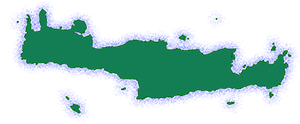














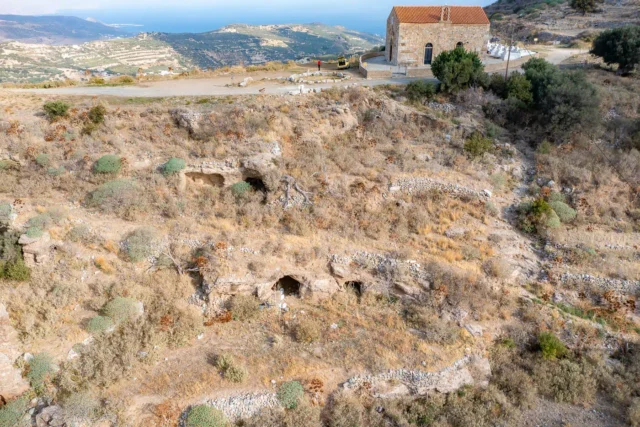
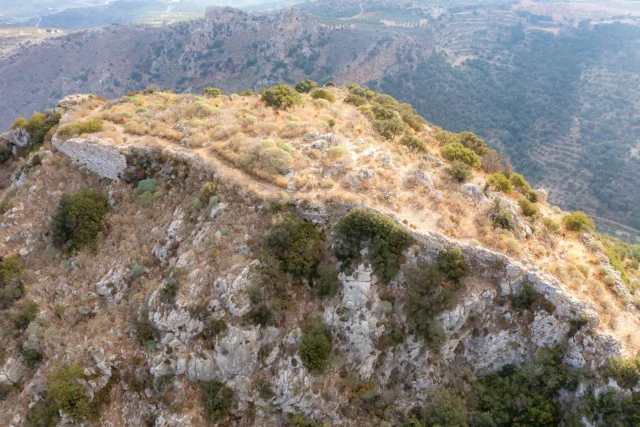




There are no comments yet.